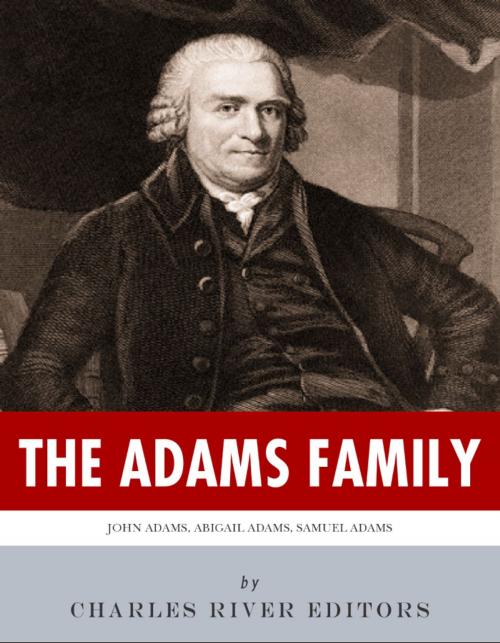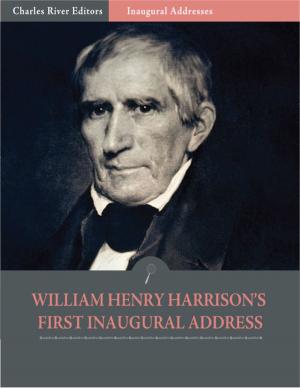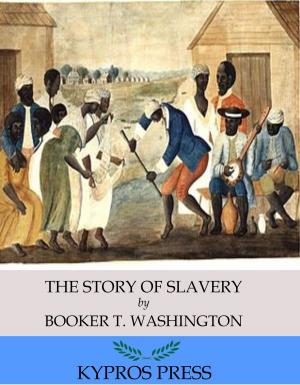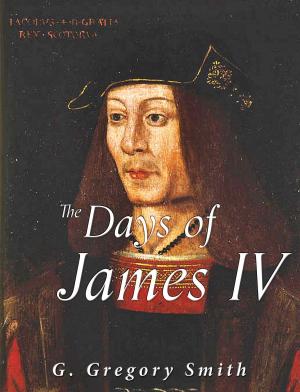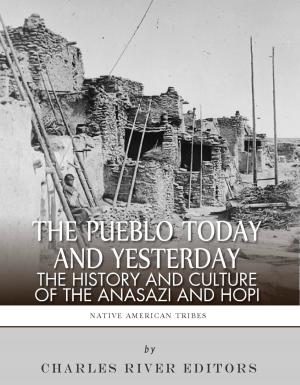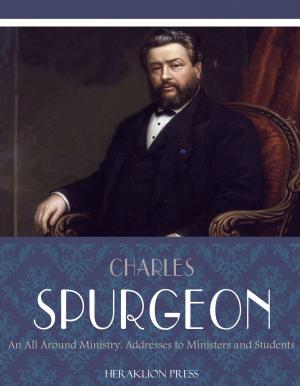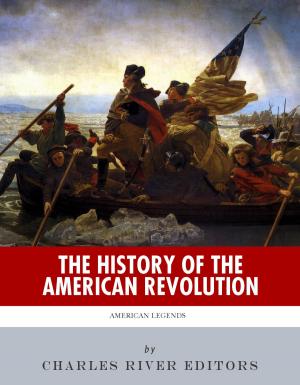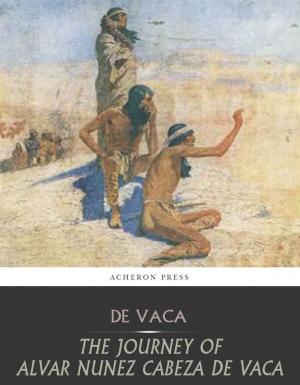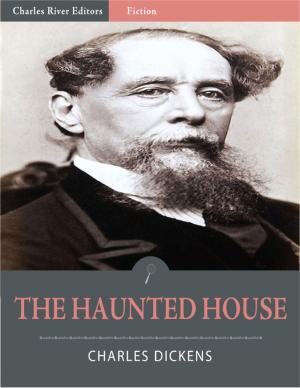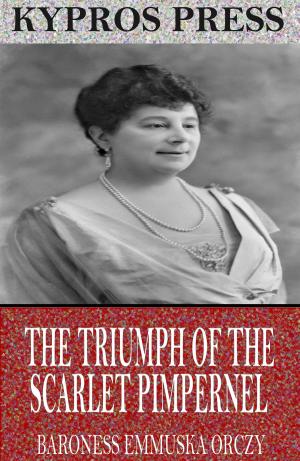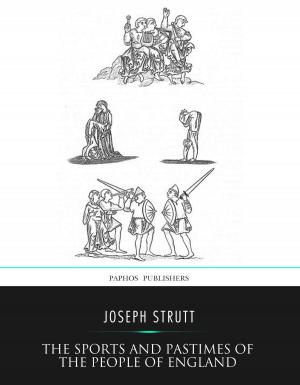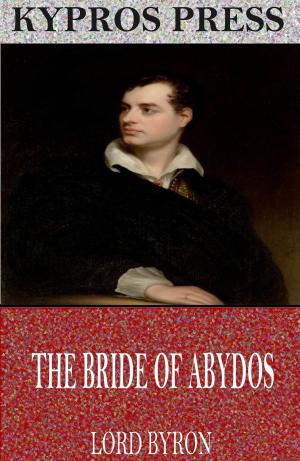The Adams Family: The Lives and Legacies of Samuel, John, Abigail and John Quincy Adams
Nonfiction, History, Americas, United States, Colonial Period (1600-1775), Revolutionary Period (1775-1800), Biography & Memoir, Political| Author: | Charles River Editors | ISBN: | 9781475319149 |
| Publisher: | Charles River Editors | Publication: | November 8, 2012 |
| Imprint: | Language: | English |
| Author: | Charles River Editors |
| ISBN: | 9781475319149 |
| Publisher: | Charles River Editors |
| Publication: | November 8, 2012 |
| Imprint: | |
| Language: | English |
*Weaves the lives and work of the Adams family into one entertaining and educational narrative.*Includes several quotes and writings from Samuel, John, John Quincy and Abigail. *Includes pictures of the Adams family and important people, places, and events in their lives.*Includes a Bibliography for further reading.*Includes a Table of Contents. The American Revolution had no shortage of compelling characters with seemingly larger than life traits, including men like the multi-talented Benjamin Franklin, the wise Thomas Jefferson, the mercurial John Adams and the stoic George Washington. But no Revolutionary leader has been as controversial as Samuel Adams, who has been widely portrayed over the last two centuries as Americas most radical and fiery colonist. Among his contemporaries, Samuel Adams was viewed as one of the most influential colonial leaders, a man Thomas Jefferson himself labeled truly the Man of the Revolution and the one who the Boston Gazette eulogized as the Father of the American Revolution. Samuel was an outspoken opponent of British taxes in the 1760s, one of Bostons hardest working writers and orators, a leader of the Boston Caucus, active in the Sons of Liberty, and a political leader who organized large gatherings in settings like Faneuil Hall and the Old South Meeting House. When cousin John Adams was an Ambassador to France during the Revolution, he had to explain that he was not the famous Adams. John Adams remained a celebrated figure in Boston for all the work he did in Massachusetts before and after the Revolution, but his national reputation has experienced quite a renaissance over the past decade, beginning with David Mcculloughs best selling biography in 2001, followed in 2008 by the popular HBO series based on it. While her time as First Lady was important, Abigail Adams remains one of the most recognized and respected First Ladies in American history due to her voluminous correspondence with John when they were separated throughout the American Revolution, as she remained in Massachusetts while John found himself in the thick of politics during his time in the Continental Congress and over in France. In addition to providing a comprehensive account of the inner workings of both politics and the home front during that important chapter in history, the letters also demonstrated the strong intellectual and emotional bond the two of them shared, allowing historians a glimpse of just how influential Abigail was on her husbands ideology and decision making. John Quincy Adams set a lot of firsts for his country. In addition to being the first son of a president to become president himself, John Quincy Adams also managed to be a U.S. Senator, a U.S. House Representative, a Secretary of State, and an ambassador to several countries. Though he is known primarily for his presidential races against Andrew Jackson, there is a general consensus among historians that he is one of Americas greatest and most skilled diplomats, responsible for successes such as the Treaty of Ghent (which ended the War of 1812), the annexation of Florida from Spain, and the Monroe Doctrine. The Adams Family chronicles the lives, work and writings of one of the nation's most important families, analyzing their relationships with each other and their lasting legacies.
*Weaves the lives and work of the Adams family into one entertaining and educational narrative.*Includes several quotes and writings from Samuel, John, John Quincy and Abigail. *Includes pictures of the Adams family and important people, places, and events in their lives.*Includes a Bibliography for further reading.*Includes a Table of Contents. The American Revolution had no shortage of compelling characters with seemingly larger than life traits, including men like the multi-talented Benjamin Franklin, the wise Thomas Jefferson, the mercurial John Adams and the stoic George Washington. But no Revolutionary leader has been as controversial as Samuel Adams, who has been widely portrayed over the last two centuries as Americas most radical and fiery colonist. Among his contemporaries, Samuel Adams was viewed as one of the most influential colonial leaders, a man Thomas Jefferson himself labeled truly the Man of the Revolution and the one who the Boston Gazette eulogized as the Father of the American Revolution. Samuel was an outspoken opponent of British taxes in the 1760s, one of Bostons hardest working writers and orators, a leader of the Boston Caucus, active in the Sons of Liberty, and a political leader who organized large gatherings in settings like Faneuil Hall and the Old South Meeting House. When cousin John Adams was an Ambassador to France during the Revolution, he had to explain that he was not the famous Adams. John Adams remained a celebrated figure in Boston for all the work he did in Massachusetts before and after the Revolution, but his national reputation has experienced quite a renaissance over the past decade, beginning with David Mcculloughs best selling biography in 2001, followed in 2008 by the popular HBO series based on it. While her time as First Lady was important, Abigail Adams remains one of the most recognized and respected First Ladies in American history due to her voluminous correspondence with John when they were separated throughout the American Revolution, as she remained in Massachusetts while John found himself in the thick of politics during his time in the Continental Congress and over in France. In addition to providing a comprehensive account of the inner workings of both politics and the home front during that important chapter in history, the letters also demonstrated the strong intellectual and emotional bond the two of them shared, allowing historians a glimpse of just how influential Abigail was on her husbands ideology and decision making. John Quincy Adams set a lot of firsts for his country. In addition to being the first son of a president to become president himself, John Quincy Adams also managed to be a U.S. Senator, a U.S. House Representative, a Secretary of State, and an ambassador to several countries. Though he is known primarily for his presidential races against Andrew Jackson, there is a general consensus among historians that he is one of Americas greatest and most skilled diplomats, responsible for successes such as the Treaty of Ghent (which ended the War of 1812), the annexation of Florida from Spain, and the Monroe Doctrine. The Adams Family chronicles the lives, work and writings of one of the nation's most important families, analyzing their relationships with each other and their lasting legacies.
